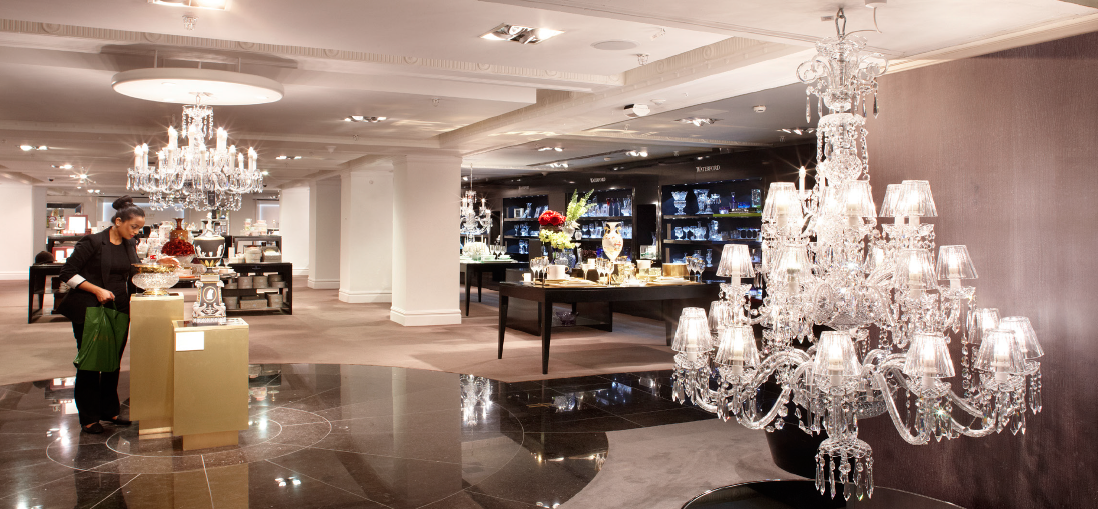Exeter's plan is to turn of lights between 12:30am and 5:30am on minor, less busy roads. Loughborough followed suit by switching off around half of all its streetlights from midnight to 5:30am as part of the Leicestershire county attempt to cut energy costs.
Instead of turning its lights off, Gloucestershire county council has indicated that it is moving ahead with a plan to install LED street lighting across the county. The county council stated on its website that, 'Approval was given for the council to go to the market and invite proposals for a 12 year contract to replace our street lighting with LED technology.'
Gloucestershire has made other attempts to save energy on its street lighting. By dimming lights on main roads and implementing partial night lighting it is working towards reducing the annual £2 million that its 60,000 street lights consume in electricity, but it believes that using LED street lighting will include further benefits such as,
- 'Up to 50% reduction in energy usage.'
- 'They can also be dimmed to any level of light output with a corresponding decrease in energy use.'
- 'Low usage- 70% reduction in street light lamp maintenance costs.'
- 'Better quality of light.'
- 'Fewer faults.'
- 'Less light pollution.'
Wigan, has become the latest UK municipality to switch street lighting to LED, now joining with Liverpool and Glasgow. The borough is investing £11 million to replace 31,000 lights with LEDs.
'I know some councils are switching lights off to save money but I don't think that's something people would want in Wigan Borough,' Wigan Council Leader Lord Peter Smith said in a press release. 'We’ve instead come up with a new scheme to replace our existing lights with LEDs which will still offer the same service the public expects but will be considerably cheaper.'
Wigan has opted for Philips LEDs and control systems, and is counting on Philips to cut their electricity bill by 60%, save them £1 million a year and provide lighting that will last for twenty years plus.
Whilst several areas have decided to replace their street lighting with LEDs, most of the counties involved maintain that turning off the street lights during the early hours will make a long term energy saving, most probably to avoid paying the initial costs of LEDs. What cannot be overstated is how much energy, money and time LEDs would save the councils but finding a spare £11 million like Wigan, is a mean feat for most councils.
The debate over street lighting is now concerning other issues than its costs, worryingly, taxi drives in Chepstow are showing their dissatisfaction with the street lighting being switched off for several hours in the night by claiming that it will increase their chances of running over hard to see drunkards!
Chepstow have already started turning off street lights between midnight and 5 in the morning in an effort save £180,000, a mere fraction of the money that could be saved by switching to LEDs.
Kent began switching off street lighting in quiet areas from 1am to 6:30am and Police have been monitoring the crime levels in such areas since. They confess its too early to tell whether crime levels have indeed increased but its concerns are partly based on a report from the professional association, the College of Policing.
And so, the debate continues...
 Harrods in Knightsbridge, London, the most famous department store in the world is now home to Philips LED Diamond Spark Candles, the next generation of MasterLED candles. The Wedgwood concession in store where the Candles have been used is lit by chandeliers. With Wedgwood being a global brand acclaimed for its luxury home and lifestyle products it was essential for the chandeliers to have the best possible lamp providing the best possible illumination.
Harrods in Knightsbridge, London, the most famous department store in the world is now home to Philips LED Diamond Spark Candles, the next generation of MasterLED candles. The Wedgwood concession in store where the Candles have been used is lit by chandeliers. With Wedgwood being a global brand acclaimed for its luxury home and lifestyle products it was essential for the chandeliers to have the best possible lamp providing the best possible illumination.

